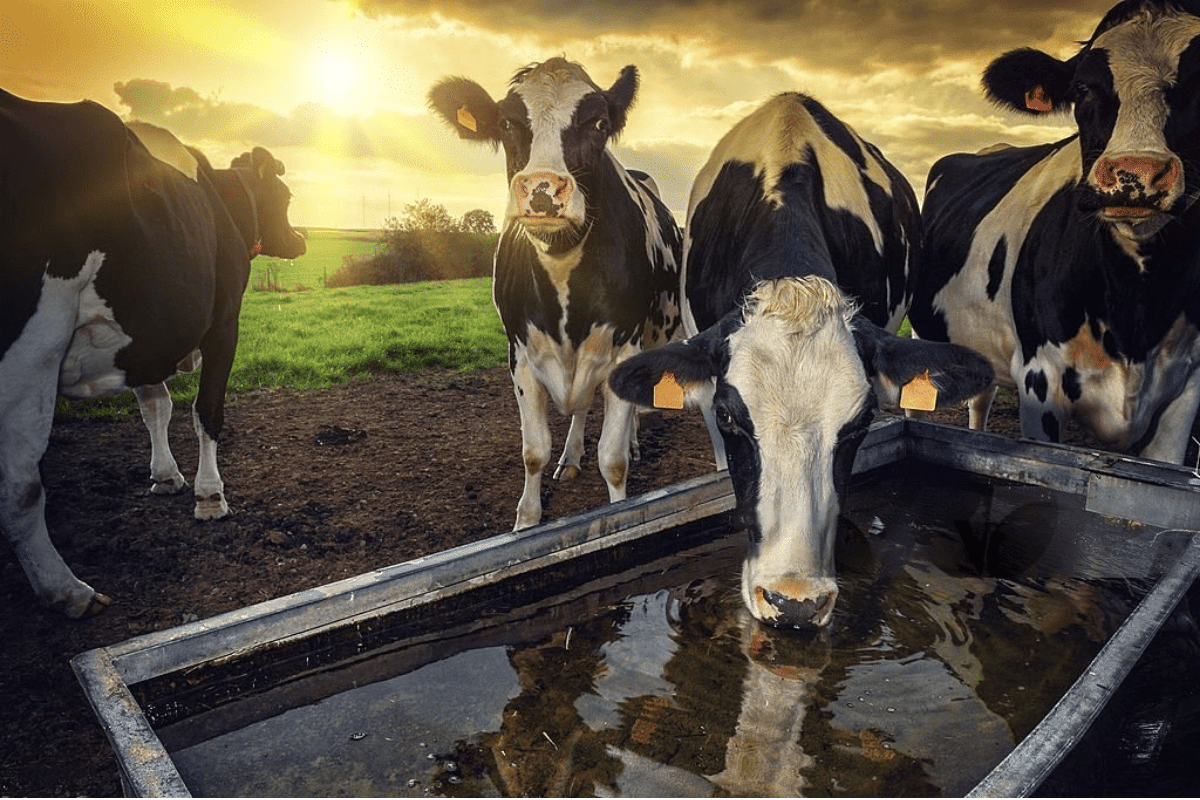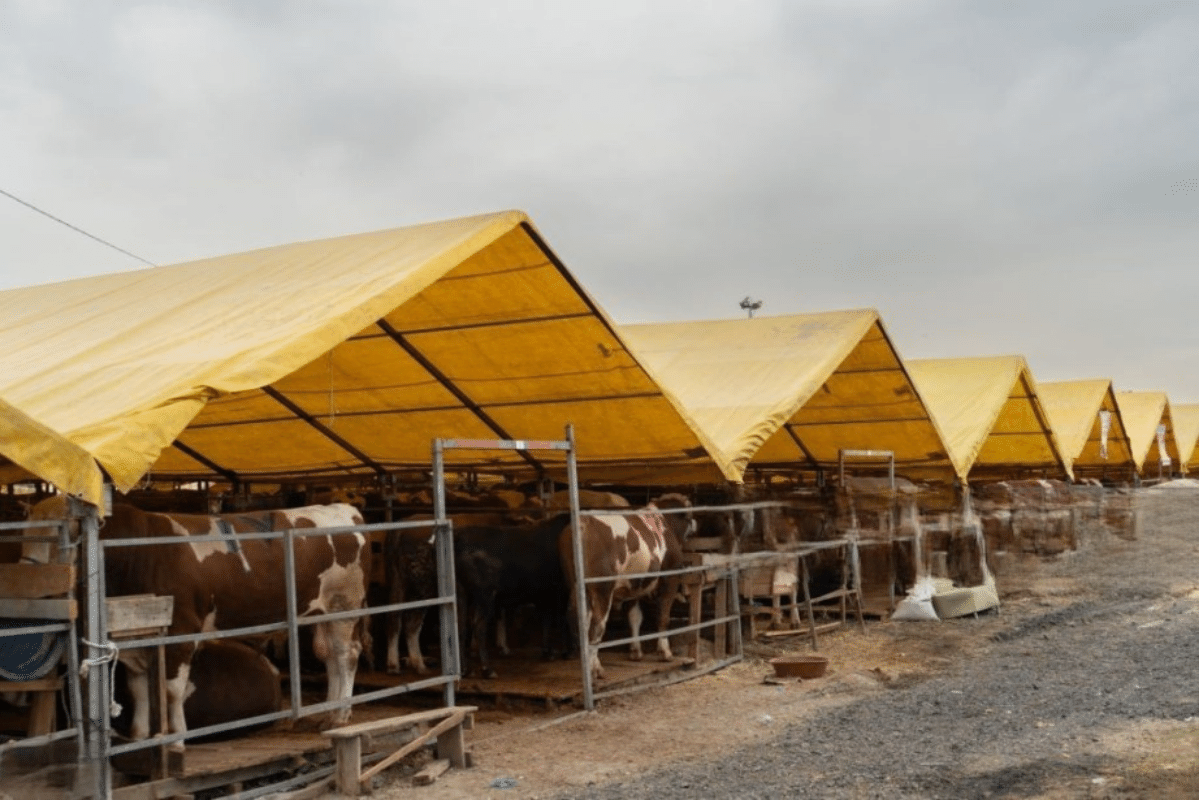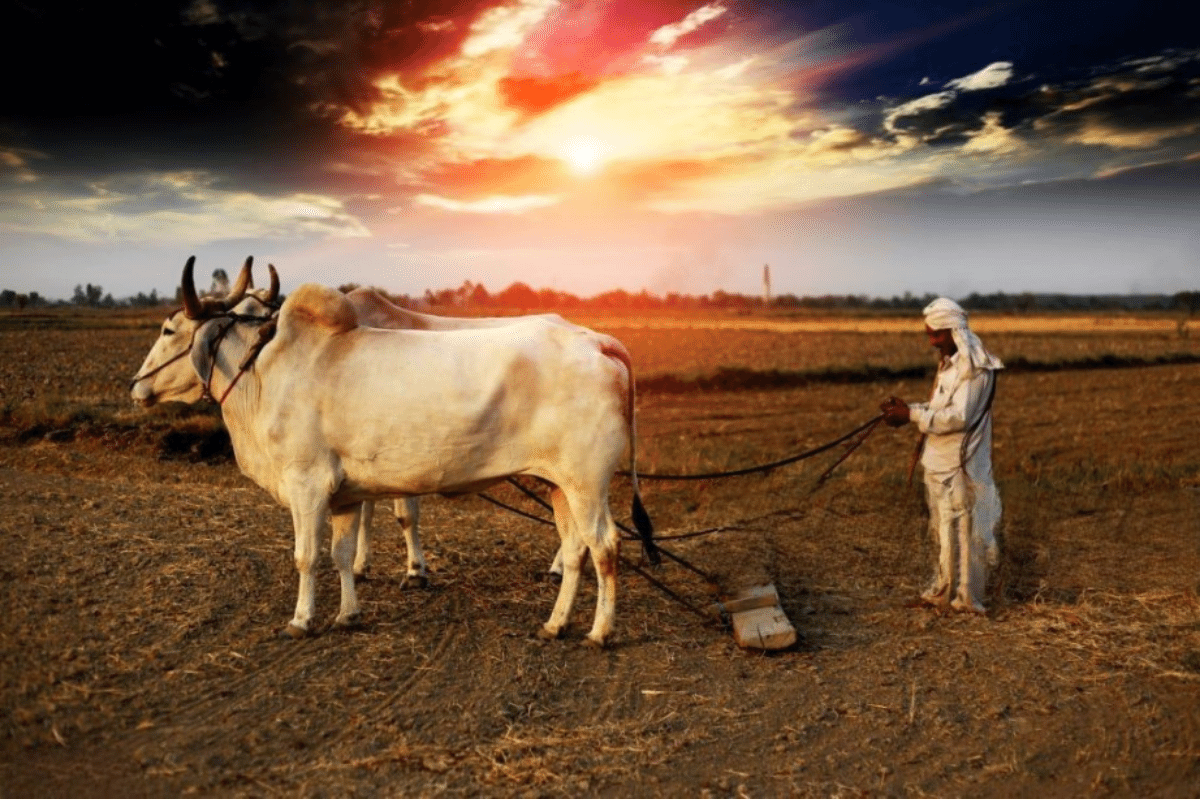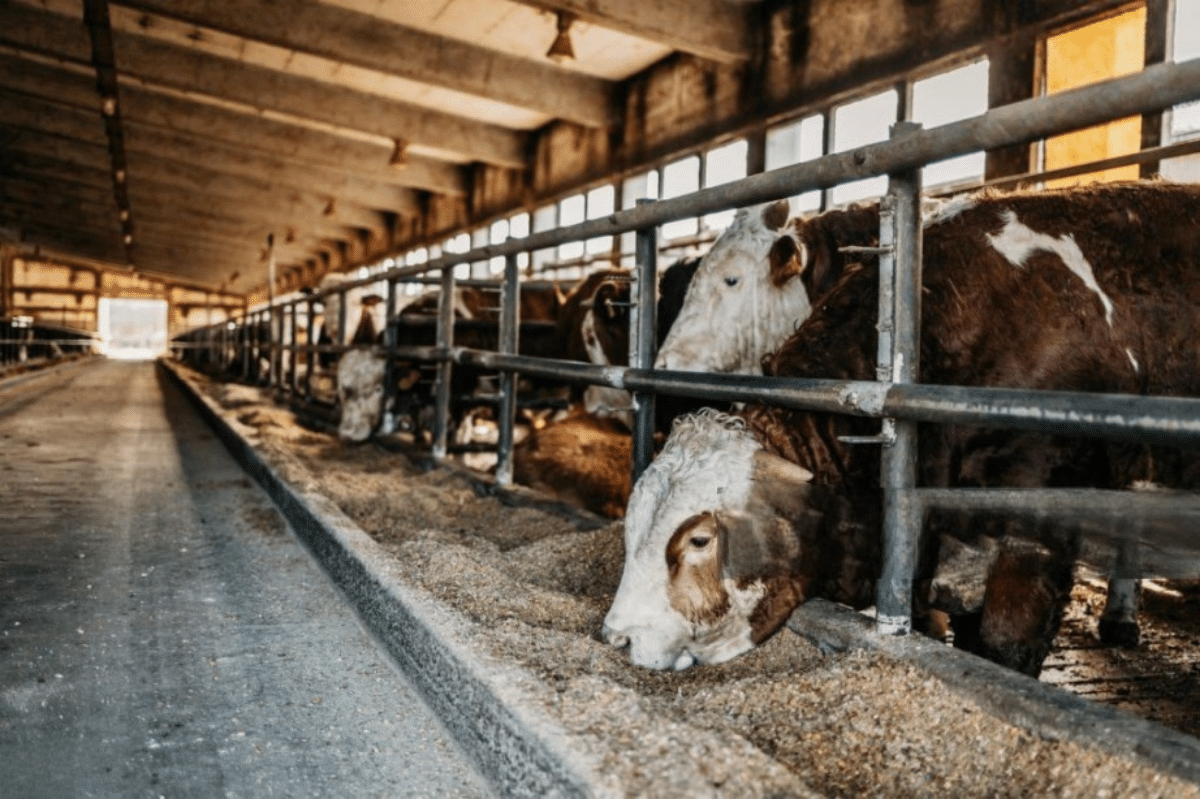How do you treat heat stress in cows?
Similar to people, cows are prone to heat stress, particularly in the summertime. Farmers must act proactively to ensure the health and comfort of their cows.
One of the most important problems on dairy farms is heat stress in the cows, which can lead to a reduction in milk yield, feed intake, and overall health if farmers don't shade, ventilate, and give them water.

Did you know that the cow's normal temperature is 38°C (101°F) and during summer it can go up-to 104°F. So it is necessary to ensure that well-being.
The effects of climate change on the cattle industry include heat stress, decreased feed intake, and weakened immune systems in cattle. Extreme weather events including heatwaves, droughts, and strong storms are brought on by climate change.
Here are some simple yet effective ways to treat heat stress in cows:
1. Offer Adequate Water
Cows require sufficient water, particularly on hot days. Ensure they have clean and freshwater all the time at their disposal. They make use of water intake to maintain their body temperature and stay hydrated.

2. Offer Shade
Shade is a must for cows to get relief from hot sun. It is possible to reduce heat stress levels by providing natural or artificial shade. Provide enough shade so that all cows can relax properly.

3. Employ fans and ventilation
Fans and air circulation can help cool down the cows by installing them in the barn and ensuring proper ventilation. Make use of fans in a position that blows a breeze to keep them cool.

4. Implement Soakers
The use of low-pressured sprinklers or soakers is an efficient approach which helps to cool them down. These creatures could be used in the systems to activate at predetermined temperatures and spray a cooling fog that keeps you cooler.
5. Hydrotherapy Treatment
To treat heat stroke or heat stress of any significance, the cow can be washed using cold water for about 20-30 minutes in order to maintain internal body temperature. Concentrate on the back of the neck, this area usually generates heat . In sever cases intravenous fluids can be recuired.

6. Nutrition and supplements must be part of your training regimen.
With right nutrition and supplementation specifically formulated for them to survive heat, cows might commence coping with the heat stress. Select feed and minerals that will help them stay healthy in the periods with increased temperatures.


Leave a comment